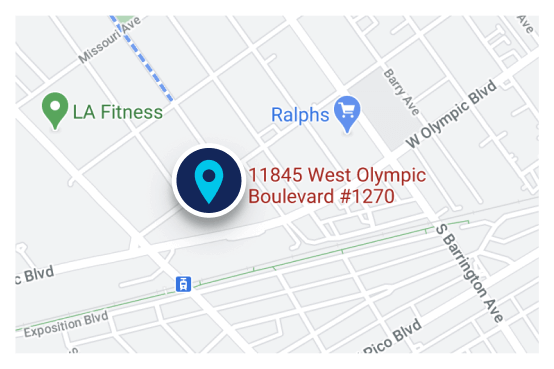
When you purchase or lease a vehicle protected by the manufacturer’s new vehicle warranty, you expect that the manufacturer will resolve any issues affecting the vehicle’s reliability or safety. However, some cars have substantial warranty-covered problems that persist despite the manufacturer’s multiple repair attempts. These vehicles, known as “lemons,” can cost vehicle owners significant money due to the loss of use or value of their car.
Fortunately, the California Lemon Law provides legal protection to people who buy or lease a lemon. At The Barry Law Firm, we have focused exclusively on Lemon Law cases since 2010, helping thousands of California consumers get rid of their lemon cars. And because the Lemon Law requires auto manufacturers to pay the consumer’s legal fees in successful claims, we never charge our clients for our Lemon Law services.
Contact The Barry Law Firm today for a FAST & FREE case evaluation with a Lemon Law lawyer serving San Diego to discuss your legal options for relief from persistent defects in your vehicle.
What Is the Lemon Law in San Diego?
In San Diego, California’s Lemon Law protects consumers who buy or lease a vehicle under a manufacturer’s original warranty that suffers from defects that the manufacturer cannot fix. The Lemon Law gives manufacturers a “reasonable” opportunity to repair an issue with the vehicle that substantially affects its safety, use, or value. If the manufacturer cannot resolve the problem within a reasonable number of repair attempts, the buyer or lessee can demand that they buy the vehicle back.
What Qualifies a New Car as a Lemon?
A new vehicle may fall under Lemon Law protections if:
- The vehicle has a substantial defect that impacts its safety, use, or value.
- The manufacturer’s original warranty covers the issue.
- The problem started while the car was still under the manufacturer’s warranty.
- The manufacturer was given a reasonable number of repair attempts.
- The vehicle was purchased or leased in California, with exceptions for military members.
- The problem resulted from a design or manufacturing defect in the car rather than external factors such as neglect, misuse, or unauthorized modifications.
If you aren’t sure whether your new vehicle qualifies as a lemon, an experienced Lemon Law attorney serving San Diego at The Barry Law Firm can help.
Reasonable Number of Repair Attempts
The California Lemon Law gives manufacturers a reasonable opportunity to correct a defect with a vehicle. This means that you usually must give the manufacturer, often through their authorized dealership or service center, several repair attempts. This is a key part of a San Diego Lemon Law claim because it establishes that the defect is persistent or unrepairable and the manufacturer has had a fair chance to fix it.
What is considered a reasonable number of repairs under California’s Lemon Law can vary from case to case. For defects posing a significant danger, two or more attempts to fix the problem are typically considered reasonable. The manufacturer may be entitled to more than two attempts to fix less severe issues. In certain circumstances, a vehicle may automatically qualify as a lemon if it is out of service for an inordinate amount of time.
How to Prove a New Vehicle Is a Lemon
To prove that your car qualifies as a lemon under the California Lemon Law, you will need thorough documentation of the vehicle’s issues to establish that they affect the safety, use, or value of your vehicle. You will also need to demonstrate that the manufacturer has had a reasonable number of repair attempts to try to fix the issue.
You should keep copies of all repair orders and receipts for each time you bring your vehicle into the shop for repairs. If your car has a visible issue, take photos of it before and after taking it to the shop. Consider bringing your vehicle to an independent mechanic for an evaluation and a second opinion to confirm the issue with your car. This evidence can help prove that your vehicle has a defect entitling you to protection under the Lemon Law and show that the manufacturer has had a reasonable opportunity to resolve the issue.
What Are the Potential Outcomes of a Lemon Law Case?
Once a manufacturer has had a reasonable number of repair attempts to fix a serious warranty-covered issue, you may seek relief under the San Diego car Lemon Law. The Lemon Law entitles you to demand that the manufacturer buy the defective vehicle back and refund your costs related to owning or leasing the lemon, including:
- The purchase price or lease price, including down payments, any monthly payments made, and your remaining loan balance
- Sales or use tax, license fees, registration fees, and other official fees
- incidental expenses due to your vehicle’s defect, such as towing or rental car costs
- Legal fees for pursuing your Lemon Law claim
How Can a Lawyer Help with My San Diego Lemon Law Claim?
The Lemon Law lawyers at The Barry Law Firm can help you pursue your Lemon Law claim by:
- Evaluating your case to determine if your vehicle qualifies as a lemon and explaining your legal options
- Assembling evidence needed to prove your right to relief under the Lemon Law, including repair records and correspondence with the manufacturer
- Documenting your losses due to your vehicle’s defect so we can pursue fair compensation
- Filing a San Diego Lemon Law claim and managing the legal process from start to finish, including all the paperwork and court filings that your case needs
- Communicating with your car’s manufacturer for you, taking the stress of the claims process off your shoulders
- Aggressively negotiating for maximum compensation and taking your case to court, if necessary
Perhaps most importantly, we will do all of this at no charge to you. When a consumer wins a Lemon Law claim in California, the manufacturer is required to pay their attorneys’ fees. That means you’ll never see a bill from us, no matter the outcome of your case.
Contact The Barry Law Firm today for a FAST & FREE consultation with a Lemon Law lawyer serving San Diego to discuss your legal options for getting rid of your defective car.




